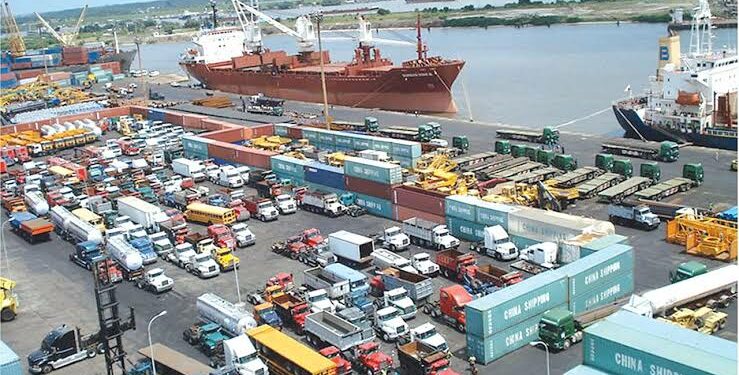Maritime expert, Dr Bolaji Akinola, on Tuesday, said Nigeria is losing millions of dollars annually to lack of ocean going vessels to lift its crude, refined petroleum products and other general cargoes.
Speaking on a television programme monitored by LEADERSHIP, Dr Akinola, stated that of the 5,000 vessels that visited Nigerian seaports annually, none belongs to Nigeria.
He, however, bemoaned Nigeria absence in the lifting of Nigeria crude oil out of the country and importation of refined petroleum products into the country.
According to him, the country should have a strategic plan to ensure that within the life span of the administration, Nigerians are able own vessels and lift 10 percent of freight originating in amd out of the country.
He said, “Nigeria loses lot of money from international trade, the movement of crude oil out of the country and importation of refined products into the country and the importation of other foods into the country and an average of 5,000 vessels come into Nigeria and none of the vessel belong to a Nigerian. Imagine, if we have a strategic plan to say our of the 5,000 vessels trading, we will ensure that within the life span of the administration, Nigerians are able to do 10 percent.”
He proposes that by investing in port infrastructure, streamlining regulating processes and improving operational efficiency, nigeria can revitalized it’s inland and coastal shipping sector and reduce trade imbalance and promote inclusive economic growth
For the government to actualise trillion dollar benefits anticipated from the blue economy, mere rhetoric won’t suffice instead, he emphasized need to converted effort and actionable initiative
“There is need for alignment of purpose so that in the fishery, these are the low hanging fruits, the coastal trade, the international trade and the fish trawling industry. We also do look at that. How do we ensure that we get more Nigerian fishing trawlers so that we can stem capital flight and retain value locally.
“Nigeria loses lot of money from international trade, the movement of crude oil out of the country and importation of refined products into the country. Also, the importation of other foods into the country. An average of 5,000 vessels come into Nigeria annually and none of the vessels belong to a Nigerian. Imagine, if we have a strategic plan to say out of the 5,000 vessels trading, we will ensure that within the life span of the administration, Nigerians are able to do 10 percent of the shipping,” Dr Akinola stated.
He, however, proposes that by Investing in port infrastructure, streamlining regulating processes and improving operational efficiency, Nigeria can revitalized its inland and coastal shipping sector, reduce trade imbalance and promote inclusive economic growth.



